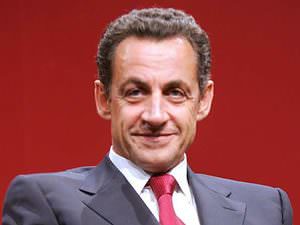‘Midnight in Paris’: Tripping the City of Light Fantastic
Gil (Owen Wilson) is lolling on some steps in Paris, contemplating his moderately unhappy fate when an antique automobile pulls up and no less than F. Scott Fitzgerald and Zelda invite him to join them. In, as it happens, the 1920s, in the City of Light.I like the way Woody Allen induces us to suspend our disbelief in his fantasy. Over the years he has become—again, this is not something people seem to notice—a master filmmaker.
Gil (Owen Wilson) is lolling on some steps in Paris, contemplating his moderately unhappy fate—he’s a screenwriter who thinks he should be a novelist, he’s engaged to a rich bitch (Rachel McAdams) who does not share his artistic ambitions or his desire to realize them in the French capital—when an antique automobile pulls up and no less than F. Scott Fitzgerald and Zelda invite him to join them. In, as it happens, the 1920s, in the City of Light. Soon enough he’s involved with Hemingway and Gertrude Stein, Salvador Dali and just about everyone who was anyone in the dear, dead days. (T.S. Eliot is not seen, but he is heard introducing himself from the cab that returns for Gil every midnight.) There is, of course, an utterly fetching young woman (Marion Cotillard) who sleeps with all the great painters but indicates something more than a passing fancy for Gil.
Over the years, Woody Allen has occasionally resorted to his version of magical realism—the great example being, to my mind at least, “The Purple Rose of Cairo”—and though not many critics have noticed this, it’s a realm that’s extraordinarily well-suited to a man not entirely enamored of the contemporary quotidian. If he can send his characters flying through time and space, they can escape that oppressive reality. And the obligation to crack wise. The very peculiar circumstances in which Allen places them can, in effect, do their comedic talking for them.
That’s not to say that Allen is above having some fun with the historical figures so richly populating “Midnight in Paris.” Hemingway, for example, always talks in short, portentous sentences. Stein appears sans Alice B. Toklas but full of motherly spirits. And when screenwriter Gil spitballs an idea for a movie to Luis Buñuel, the director does not understand the idea behind what would one day become “The Exterminating Angel.” He thinks the thing just sounds preposterous.
This is a very relaxed, yet often rather subtle film—it opens, for example, with a lovely montage of postcard views of Paris (no dialogue, no characters, just some underscoring—which is not as quite the geographic love letter that it first appears to be. The sequence is shot entirely under gray or rainy skies, hinting at a touch of darkness in the fantasy that is about to unfold. And as the friend of mine who joined me at the screening observed, the film offers no hint at the tragedies that would eventually overtake the lives of most of the historical figures Gil encounters. For the purposes of this film—and Gil’s education—they must be perpetually young and promising and full of hope—the better to inspire the writer to make his break with Hollywood and his fiancée and all the other predictable life expectations that threaten to drown his often rubbery spirit.
I like the way Allen induces us in his fantasy to suspend our disbelief. Over the years he has become—again, this is not something people seem to notice—a master filmmaker. The sinuousness of his camera, the intricate ways he groups people before it, the subtle inevitability of the way his editing carries us to unexpected places, bespeaks an un-prepossessing film artistry that simply refuses to toot its own horn.
At the end of the film, Allen cuts Gil a very nice and unexpected romantic break, which, of course I’m not going to betray—except to say that it involves rain, in which the writer, alone of the film’s modern characters, loves walking. It’s like a scrim that softens the outlines of our not-so-wonderful modern world that intrudes even on Paris.
I don’t suppose “Midnight in Paris” is a “major” film (whatever that means) or even a “major“ Woody Allen movie (ditto). There is something a little too repetitive in its structure—the constant reappearance of Gil’s transporting transportation does get a little stale eventually—but Allen is not as enamored by nostalgia as he superficially seems to be. It certainly informs Gil’s sensibility, without, finally, dominating it (that way lies the mild madness of people who devote themselves to the obsessive collection of old comic books). The message here—and Gil finally states it quite explicitly—is that we can permit memory to color our thoughts, but not to distort or fully claim them.
But let’s not dwell too heavily on that point. What this movie most significantly offers us is the relaxed confidence of a director at the top of his game, inviting us to join him at his play. There was a time when films like this were among the common delights of moviegoing. It’s a measure of the medium’s romantic and comedic decline that this film seems such a treasurable rarity nowadays.
Oh, and finally, this celebrity footnote: As was widely reported, Carla Bruni, France’s unofficial first lady, is in the film, which makes no fuss about her presence. She’s just a pretty woman quietly going about her business, just like everyone else present. I guess I forgot to mention that, among his other virtues, Woody’s awfully good with actors, too.
Your support matters…Independent journalism is under threat and overshadowed by heavily funded mainstream media.
You can help level the playing field. Become a member.
Your tax-deductible contribution keeps us digging beneath the headlines to give you thought-provoking, investigative reporting and analysis that unearths what's really happening- without compromise.
Give today to support our courageous, independent journalists.


You need to be a supporter to comment.
There are currently no responses to this article.
Be the first to respond.